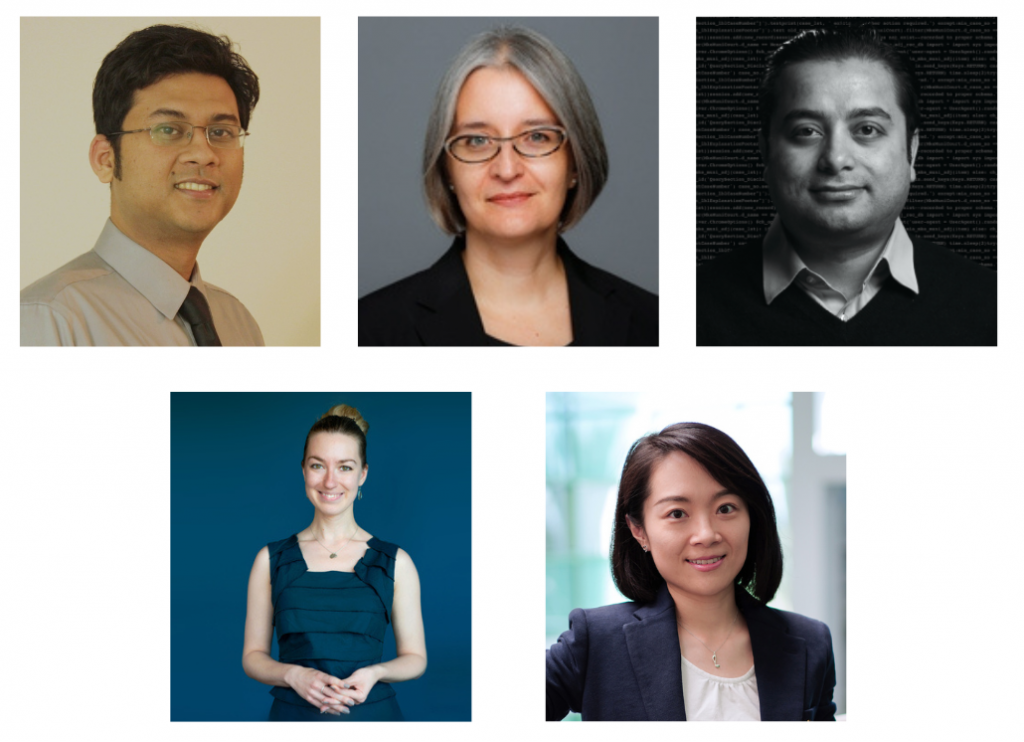As generative AI like ChatGPT and Large Language Models become increasingly integrated into our daily lives, how can we strike a balance between harnessing their potential for innovation and ensuring responsible and ethical usage?
Funded through the Emergent Data Sciences Program competition, University of Toronto Professors Syed Ishtiaque Ahmed (Department of Computer Science, Faculty of Arts & Science), Shurui Zhou (Edward Department of Electrical & Computer Engineering, Faculty of Applied Science & Engineering), Lisa Austin (Faculty of Law), Shion Guha and Anastasia Kuzminykh (Faculty of Information), are co-leading Toward a Fair and Inclusive Future of Work with ChatGPT.
The program focuses on the responsible development and ethical implementation of generative AI. It aims to shed light on the societal implications of using ChatGPT, with a particular emphasis on its impact on diverse communities. By gaining a deeper understanding of the social and ethical aspects of generative AI, the program seeks to empower researchers and users to make informed decisions and employ responsible practices when utilizing these technologies.
It will feature a series of talks, discussions, and participatory design sessions involving individuals from various backgrounds, including students, instructors, practitioners, academics, and artists.
“We recognize the profound influence of generative AI technologies on diverse communities. Our program seeks to bridge the gap in evaluation frameworks and provide a platform for diverse voices to express their experiences and insights. By fostering inclusivity and promoting ethical considerations, we aim to empower users and researchers to navigate the responsible use of generative AI with confidence,” says professor Shurui Zhou
Activities of the program include events that will provide a platform for diverse perspectives and experiences with ChatGPT, workshops and public-facing meetups to foster inclusivity and encourage open dialogue, with a focus on amplifying the voices of minority communities. Academic workshops will be co-located with major conferences, such as the Conference on Human Factors in Computing Systems (CHI), Computer-Supported Cooperative Work & Social Computing (CSCW), and Neural Information Processing Systems (NeurIPS), to disseminate research findings and engage with a wider audience. To ensure ongoing interdisciplinary discussions and knowledge sharing, the researchers will create a repository of videos, talks, and posts, hosted on the Data Sciences Institute’s website, related to the societal implications of generative AI.
A course syllabus module to educate students about the ethical considerations surrounding generative AI will also be developed. One of the unique aspects of the program involves students at the University of Toronto engaging in year-long projects that incorporate the use of ChatGPT within their workflows. This practical experience will enable students to share their findings and lessons learned through a poster presentation, contributing to collaboration and knowledge exchange.
As the program kick starts its activities, Professor Shurui is conducting an interview study to understand how large language models (LLMs), such as ChatGPT, might affect the practices of scientists and research software engineers to collaborate and develop software. To participate, visit our website here.
Recipients of the DSI Emergent Data Sciences Program competition are funded for their programs which foster the development of innovative data science methodologies, deep connections with computation and applied disciplines, new training programs, collaboration, knowledge mobilization, and impact beyond the academy.
“This Emerging Data Science program is driven by a shared mission to assess the societal implications of generative AI. Together, we aim to create a robust framework that promotes trust, accountability, and transparency in the AI ecosystem, ensuring that these technologies benefit all members of society,” says David Lie, Associate Director of Thematic Programming & Data Access at the Data Sciences Institute.

